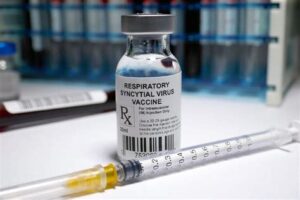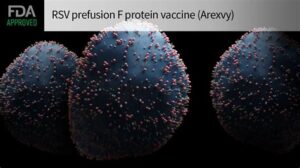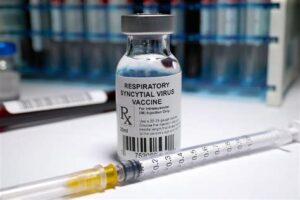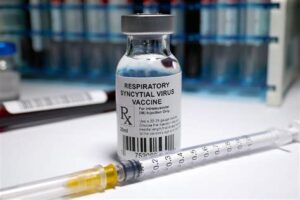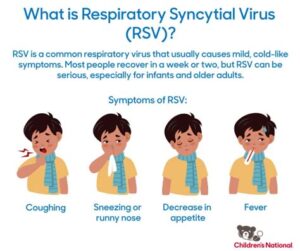Learn about the RSV vaccine, its effects on immunocompromised individuals, risks and benefits, herd immunity, and the importance of consulting a healthcare professional.As the colder months approach, respiratory viruses like RSV (respiratory syncytial virus) become a growing concern, especially for vulnerable populations. With the introduction of the RSV vaccine, many are wondering if immunocompromised individuals can receive this potentially life-saving shot. In this blog post, we will explore the RSV vaccine’s purpose and safety, specifically for those with weakened immune systems. We’ll discuss the associated risks and benefits, how immunocompromised individuals contribute to herd immunity, and the importance of consulting healthcare professionals for personalized advice. Whether you or someone you know falls into a higher-risk category, understanding the RSV vaccine’s implications can empower you in making informed health decisions this season.
What is RSV vaccine?
The RSV vaccine is designed to protect against respiratory syncytial virus (RSV), a common virus that causes respiratory infections, particularly in infants and young children. RSV can lead to serious diseases, such as bronchiolitis and pneumonia, often requiring hospitalization, especially for those with weakened immune systems.
Recent advancements in medical research have led to the development of various RSV vaccines aimed at reducing the incidence of this virus and its associated complications. These vaccines can significantly lower the risk of severe respiratory disease among vulnerable populations, including infants, the elderly, and individuals with compromised immune systems.
Understanding the mechanism of how the RSV vaccine works is crucial. It stimulates the body’s immune response, helping to produce antibodies against the virus, thereby providing protection. Continued studies and clinical trials are focused on ensuring the safety and efficacy of these vaccines for all demographics, especially those who are immunocompromised.
Can immunocompromised individuals receive RSV vaccine?
Respiratory Syncytial Virus (RSV) is a common virus that can cause serious respiratory illnesses, particularly in vulnerable populations such as infants and the elderly. For individuals who are immunocompromised, the question arises whether they can safely receive the RSV vaccine to protect themselves from potential infections and complications.
The RSV vaccine has been developed to provide immunity against this virus. However, due to the unique health challenges faced by immunocompromised individuals, there are specific considerations regarding vaccination. It is crucial to understand that while some immunocompromised individuals may benefit from the vaccine, others may face risks associated with its administration.
Before undergoing vaccination, it is highly recommended that immunocompromised individuals consult a healthcare professional. Medical providers will evaluate individual health status, type of immunocompromised condition, and any other ongoing treatments to determine if the RSV vaccine is appropriate. By working closely with healthcare professionals, immunocompromised individuals can make informed decisions about their health.
Risks and benefits for immunocompromised
The decision for immunocompromised individuals to receive the RSV vaccine comes with a complex balance of risks and benefits. This population, often vulnerable due to underlying health conditions or treatments affecting their immune systems, requires careful consideration.
One of the primary benefits of the RSV vaccine for immunocompromised individuals is the potential for enhanced protection against respiratory syncytial virus. Given that RSV can lead to severe respiratory illnesses, including pneumonia and bronchiolitis, vaccination can be crucial in reducing the risk of these complications. Furthermore, the vaccine may help prevent hospitalization, which can be particularly important for individuals already facing health challenges.
However, there are also risks associated with vaccination in this population. Immunocompromised individuals may experience a diminished response to the vaccine, leading to less effective protection compared to those with healthy immune systems. Additionally, there can be concerns regarding vaccine safety, as the immune response might cause unexpected side effects. Therefore, it is essential for these individuals to consult with their healthcare provider to assess their specific health conditions and make an informed decision.
Immunocompromised and herd immunity
Herd immunity is a crucial public health concept that refers to the resistance to the spread of a contagious disease within a population, achieved when a significant portion of the population becomes immune. For individuals who are immunocompromised, such as those undergoing chemotherapy, organ transplant recipients, or individuals with certain autoimmune disorders, the implications of herd immunity can be particularly complex.
Those who are immunocompromised often rely on the principle of herd immunity to protect them from infections that their bodies may struggle to fend off. When enough people in the community are vaccinated against a disease like respiratory syncytial virus (RSV), transmission rates decline, which can reduce the risk of severe illness for vulnerable populations. This phenomenon underscores the importance of widespread vaccination in maintaining public health.
While herd immunity can provide a layer of protection for the immunocompromised, it is not a substitute for vaccination and other preventive measures. Individuals in this category are encouraged to consult their healthcare professionals regarding their vaccination status and to engage in best pract
Consulting a healthcare professional
When it comes to considerations regarding the RSV vaccine, especially for immunocompromised individuals, seeking guidance from a healthcare professional is paramount. A qualified expert, such as an immunologist or a primary care doctor, can provide valuable insights tailored to each individual’s health status and treatment plan.
Immunocompromised patients have unique health challenges that can affect their response to vaccines, including the RSV vaccine. A healthcare provider can assess these challenges and determine the appropriateness of vaccination based on the patient’s medical history, medications, and overall health. They will consider various factors such as whether the patient’s immune system is sufficiently robust to respond to the vaccine, thus maximizing the benefits while minimizing any potential risks.
Additionally, consulting a healthcare professional allows for the discussion of strategies to enhance herd immunity within a community. This is particularly important for immunocompromised individuals who rely on the immunity of others to help protect them from infections.
Frequently Asked Questions
What is RSV and why is it a concern for immunocompromised individuals?
Respiratory Syncytial Virus (RSV) is a highly contagious virus that causes respiratory infections, which can be particularly severe in immunocompromised individuals due to their weakened immune systems.
Can immunocompromised individuals receive the RSV vaccine?
Yes, immunocompromised individuals can receive the RSV vaccine, but they should consult their healthcare provider to assess any specific considerations regarding their health status.
What are the benefits of the RSV vaccine for immunocompromised patients?
The RSV vaccine can help protect immunocompromised patients from severe RSV infections, potentially reducing hospitalizations and complications associated with the virus.
Are there any risks associated with the RSV vaccine for immunocompromised individuals?
While the RSV vaccine is generally safe for immunocompromised individuals, there may be some risks based on their individual health conditions, which is why medical advice is crucial.
How effective is the RSV vaccine in protecting immunocompromised individuals?
The effectiveness of the RSV vaccine can vary among individuals, but it is designed to stimulate an immune response that can help prevent serious illness from RSV.
When should immunocompromised individuals get vaccinated against RSV?
Immunocompromised individuals should discuss their vaccination timing with their healthcare provider, typically aiming for vaccination before the RSV season begins.
What alternatives exist for protecting immunocompromised individuals from RSV if they can’t get vaccinated?
In addition to vaccination, immunocompromised individuals can reduce the risk of RSV through good hygiene practices, avoiding close contact with infected individuals, and possibly receiving monoclonal antibody treatments if recommended by their doctor.
